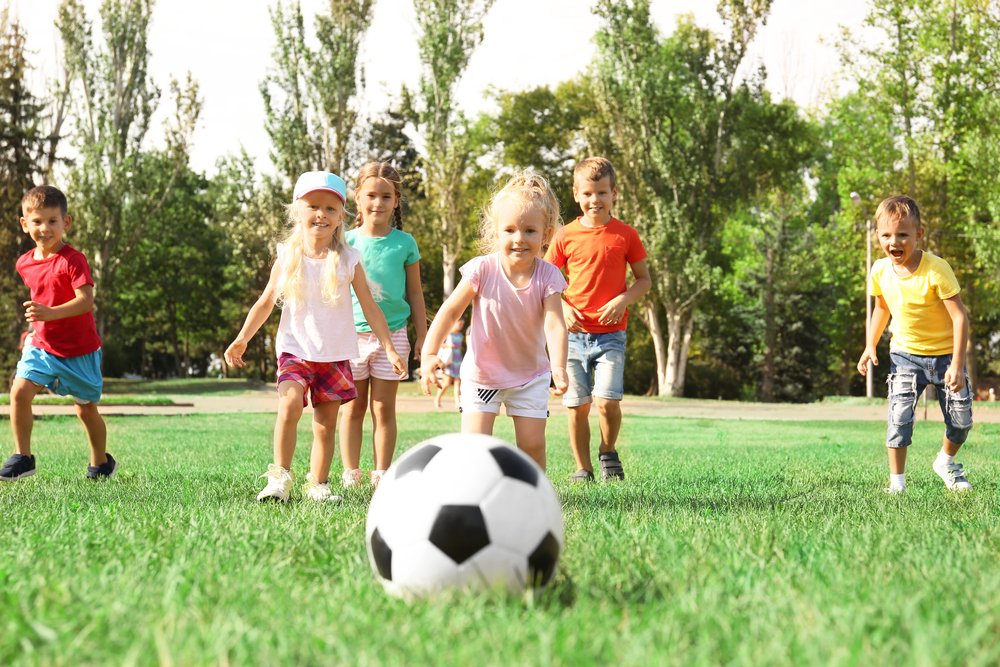Key Points:
- Daily physical activity, recommended by organizations like the American Academy of Pediatrics, provides emotional benefits for children, including stress relief and strengthened self-esteem.
- Engaging in physical activity helps children unwind, builds confidence, encourages cooperation, and fosters a positive sense of accomplishment and self-mastery.
You may have noticed how the media has been reporting that, in the past, prekindergarten children would be seen running and engaging in physical play and activity all day long, and that this has changed in our digital era. There’s some truth to that!
Data suggests that nowadays, unless kids are involved in sports, gymnastics, dance, or other structured activities, they engage in little exercise during the day. Although many aspects of child-rearing have changed with the turn of the century, the benefits of engaging in physical activity surely haven’t! In fact, researchers continue to find more and more proof of its benefits, regardless of age. In this article, we’ll focus on how exercise is beneficial to the emotional skills of developing children.
Both the American Academy of Pediatrics and the Center for Disease Control recommend that children as young as 2 years old get at least 60 minutes of physical activity every day. This daily time of moderate to vigorous activation doesn’t necessarily mean you have to get your kid to commit to an hour of running every day! You can go out for a walk, play throw and catch, have fun at a playground, dance to your favorite music, etc.
Here’s a list of some of the emotional benefits that children get from doing physical activity every day:
- Helps them unwind and vent their frustration.
- Strengthens their self-esteem and trust since it teaches them that they don’t need to be extremely good at a game to have lots of fun playing with others.
- Encourages them to try different things, persevering when encountering a new task.
- Boosts their confidence and their feelings of accomplishment and self-mastery.
- Encourages cooperating with others, building personal relationships in a fun and structured context.








